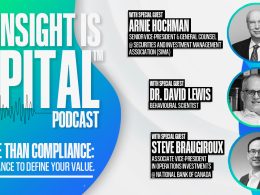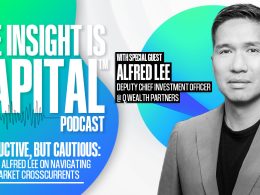Nature Vs. Nurture: Can You Change Your Clients’ Financial Behavior?
by Commonwealth Financial Network
 Research suggests that our DNA affects our spending and savings patterns. Does this mean it’s futile to try to change your clients’ financial behavior? Maybe not. While DNA can affect your clients’ decision making, it isn't the sole factor.
Research suggests that our DNA affects our spending and savings patterns. Does this mean it’s futile to try to change your clients’ financial behavior? Maybe not. While DNA can affect your clients’ decision making, it isn't the sole factor.
Several years ago, the article “Genetics ‘Single Greatest Determinant’ of Financial Behavior” cited a study positing that between one-third and one-half of financial behavior is predetermined by genetics, and not much can be done to change it. The researchers studied the financial behavior of 15,000 sets of twins in Sweden (some identical, some fraternal; some raised together, some apart). It showed that, on average, identical twins raised apart seemed to exhibit the same spending and savings patterns. Further, any effects of socialization disappeared over time. According to one of the researchers, “The innate is what prevails.”
But what is this study leaving out? Would these spendthrift twins have exhibited different behavior if they had been given some financial education? What if they had worked with a financial advisor who could moderate their behavior and help them focus on their long-term goals? We don’t know, but behavioral finance research certainly would suggest that, had auto-enrollment in 401(k)s (or whatever Sweden’s equivalent is) been utilized, it would have had a stronger influence over the twins’ collective behavior than mere genetics.
Looking at a specific behavior or genetic predisposition in such isolation may ultimately miss the bigger picture. Although our genetics may predispose us to certain undesirable financial behavior, it does not predestine us.
Some of your clients are probably spenders, but whether their DNA made them that way isn’t the central issue. What is key is whether those clients have a vision for the future that is sufficiently clear and motivating that it helps them save for their goals. If you want to help these spenders, offer them strategies to help move them through moments of weakness. For example:
- If a client frequently blows money at the mall, suggest that, for a few weeks, he leave his wallet in the car. Then, if he really wants to buy something, all he has to do is walk back out to the parking lot to get his money.
- Perhaps for another more social client, have her form a “goal attainment” group with one or more friends, where they can call one another when they’re about to make a big purchase to talk out whether the impulse is worth it.
Make it personal. If genetics can be blamed for our weaknesses, it can be thanked for our strengths. As you seek to help clients pursue their financial goals, a fun and valuable technique is helping them zero in on those strengths (see chart below). Have your clients choose three to five strengths from this list that seem to fit them, and help them brainstorm ways in which they can use those strengths to accomplish their goals.

Suppose a widowed client chooses Kindness, Spirituality, and Gratitude, and she’s currently giving more to her kids and church than she can afford. Ask her to think about how her altruistic actions could become a burden if she runs out of money and has to rely on her children. More positively, ask her what nonfinancial things she could be doing to flex those Kindness, Spirituality, and Gratitude muscles.
Your clients may also include couples with very different strengths, which can sometimes lead to arguments—especially between spenders and savers. Try reframing the situation so the couple can leverage each other's strengths toward common goals or values. If they can appreciate what the other brings to their life, their choices will ultimately be better aligned with the financial planning work you’re doing with them.
Leverage partners. In your discussions with clients about their taxes or their estate plan, you’ve likely referred them to trusted resources when their needs veer away from your expertise. In a similar vein, you can refer clients to a coach or therapist to help them move past inner obstacles. If you’re ready to seek outside assistance, the conversation might go something like this:
Jim, if I understand your goals, we’re working together to help you achieve the retirement you want—with plenty of time to hang out with your kids, to travel to warm spots in the winter, and to work on your boat. We've talked before about how certain impulse spending is affecting your likelihood of retiring when you want to. Some of my clients have found it helpful and even enjoyable to work with a coach. In the same way that you might use a personal trainer to reach a fitness goal, you can tap a coach to help you achieve this financial goal. Do you have someone in mind for this, or would it be helpful if I referred someone I trust?
Having a trusted therapist or coach among your strategic alliances makes this kind of referral a much easier task. Advisors have told me that referring a client to an outside coach also helps them keep their practices running more smoothly, as they don’t have to spend time playing therapist and stretching themselves too far outside their own comfort zones.
Although it may be simpler to believe that we are merely products of our genetics, the truth is far more complex—and far more within our hands. We are only at the forefront of understanding what role genetics plays in our physical and financial health. What is clear is that we have significant power to improve our own situations. With that in mind, enjoy helping your clients articulate powerful dreams for their future—and working with them to align their actions with those dreams.
Have you referred clients to coaches or therapists? What strategies do you leverage for couples with different financial strengths? Please share your thoughts with us below!
Commonwealth Financial Network is the nation’s largest privately held independent broker/dealer-RIA. This post originally appeared on Commonwealth Independent Advisor, the firm’s corporate blog.
Copyright © Commonwealth Financial Network

















